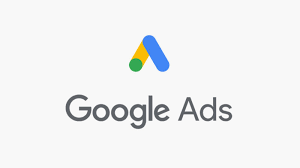In the world of digital marketing, choosing the right advertising platform can determine the success of your business. Google Ads and Facebook Ads are two of the most dominant advertising giants, each offering a unique approach to reaching audiences.
- Google Ads displays ads based on users’ search queries on Google.
- Facebook Ads targets users based on demographics, interests, and online behavior.
But which one is more profitable for your business? This article will compare their key differences, advantages, disadvantages, and strategies to help you choose the best platform for your needs.
Google Ads vs. Facebook Ads: Key Differences
Both platforms use different approaches to target audiences. Here’s a quick comparison:
| Factor | Google Ads | Facebook Ads |
|---|---|---|
| Ad Model | Search and intent-based | Social and interest-based |
| Targeting Method | Based on search keywords | Based on demographics, interests, and behaviors |
| Ad Formats | Text, Display, Shopping, Video (YouTube) | Image, Video, Carousel, Story, Lead Ads |
| Primary Goal | Convert users with high purchase intent | Build brand awareness and engagement |
| CPC (Cost Per Click) | Usually higher but more targeted | Usually lower but more engagement-focused |
| ROI (Return on Investment) | Best for businesses that rely on search-based traffic | Best for businesses looking to grow their audience and interactions |
Advantages of Google Ads

Google Ads provides a great opportunity to reach customers who are actively looking for your product or service.
✅ 1. Intent-Based Advertising (High Purchase Intent)
Google Ads targets users who are actively searching for specific products or services, increasing conversion rates.
Example:
- If someone searches for “Best Interior Design Services in New York,” a relevant ad will appear at the top of Google search results.
- This means they are already interested in hiring an interior designer, making them more likely to convert.
✅ 2. Massive Reach Across Google’s Network
Google isn’t just a search engine—it also has a vast advertising network through:
- Google Search Ads (ads in search results)
- Google Display Network (banner ads on various websites)
- YouTube Ads (video ads on YouTube)
- Google Shopping Ads (product listings in Google Shopping)
This allows businesses to reach potential customers across multiple platforms.
✅ 3. Higher Conversion Potential
Because Google Ads appear to users who already have purchase intent, the chances of conversion are significantly higher than social media ads, which rely on passive interest.
Advantages of Facebook Ads

Facebook Ads offer flexibility, creativity, and precision in audience targeting.
✅ 1. Highly Detailed Audience Targeting
Facebook Ads let businesses target audiences based on:
- Age, gender, location
- Interests and hobbies (e.g., cycling, fashion, tech)
- Online behavior (e.g., frequent online shoppers)
- Custom Audience (target users who have interacted with your business before)
This level of targeting ensures your ads reach the right people at the right time.
✅ 2. Lower Advertising Costs
Compared to Google Ads, Facebook Ads often have a lower Cost Per Click (CPC), making it an affordable option for businesses with smaller budgets.
✅ 3. Engaging and Visual Ad Formats
Facebook Ads support a variety of visually engaging formats, such as:
- Single Image Ads
- Video Ads
- Carousel Ads (multiple images in a single ad)
- Story Ads (short, full-screen ads in Facebook/Instagram Stories)
These visually appealing formats increase engagement and brand awareness, which is harder to achieve with text-based ads like Google Search Ads.
Disadvantages of Each Platform
| Factor | Google Ads Disadvantages | Facebook Ads Disadvantages |
|---|---|---|
| Cost | Higher CPC, especially for competitive keywords | Lower cost, but requires testing to optimize performance |
| Targeting | Limited to search queries, making brand awareness difficult | Interest-based targeting may lead to lower conversions |
| Competition | High competition for popular keywords | Frequent algorithm changes affecting ad performance |
Which Platform is More Profitable for Your Business?
The best choice depends on your business goals:
✅ Use Google Ads if:
- You want to reach customers who already have high purchase intent.
- Your product or service is frequently searched on Google.
- You have a larger budget to compete for high-value keywords.
✅ Use Facebook Ads if:
- You want to build brand awareness and engagement.
- Your product is visual-based, such as fashion, food, or lifestyle products.
- You need a cost-effective way to reach a broad audience.
✅ Use Both Platforms if:
- You want to reach potential customers at different stages of the marketing funnel.
- You want to test and optimize which platform works best before scaling your ad spend.
Conclusion
Both Google Ads and Facebook Ads have unique strengths. If your goal is high conversions, Google Ads is the better choice. However, if you want to increase engagement and brand awareness, Facebook Ads is more effective.








